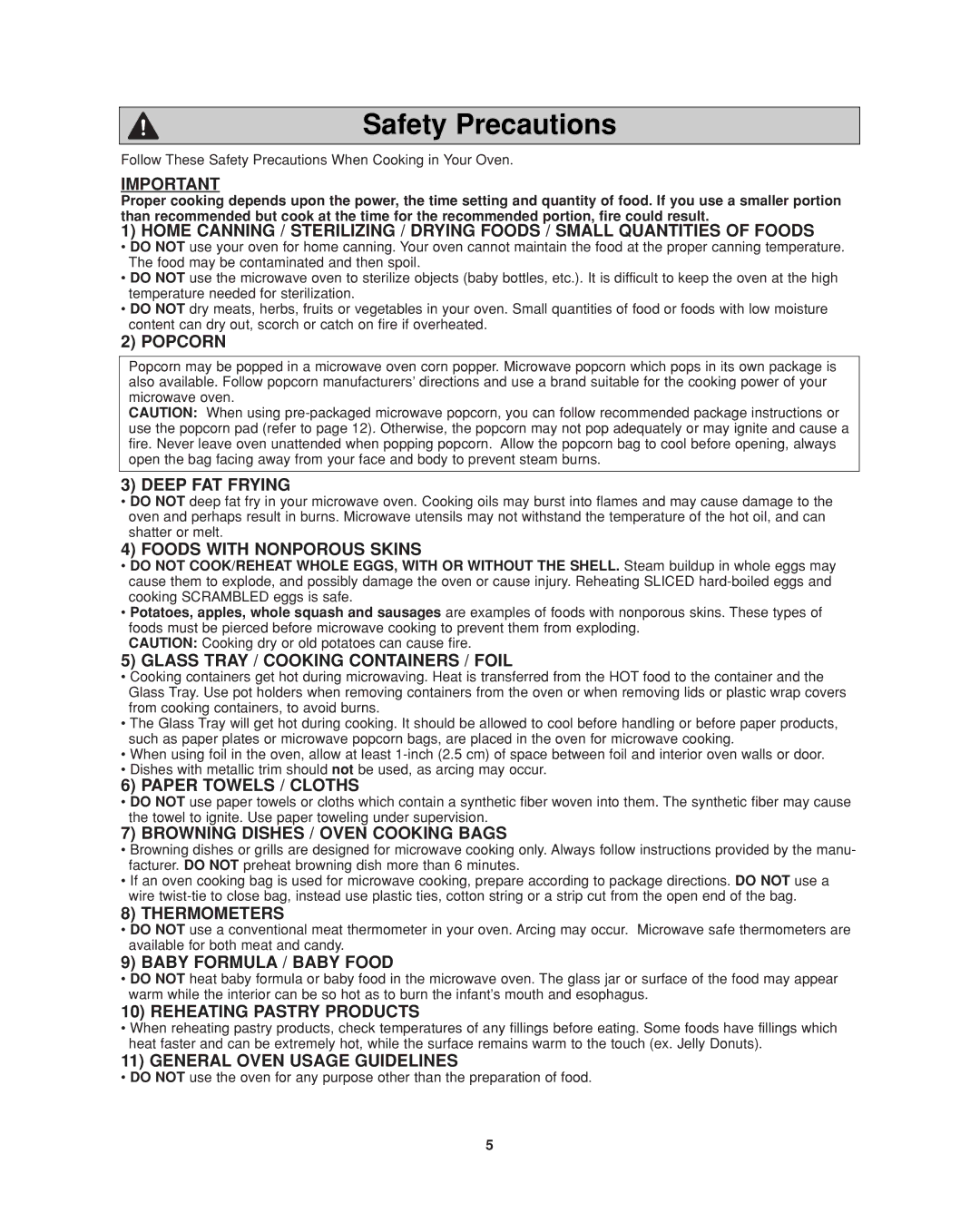NN-SD297 specifications
The Panasonic NN-SD297 countertop microwave oven is a testament to the brand's commitment to innovation, performance, and user-friendly design. This versatile appliance is aimed at individuals and families looking for efficient cooking solutions that enhance their kitchen experience.One of the standout features of the NN-SD297 is its inverter technology. Unlike traditional microwave ovens that rely on a pulsing method to control power levels, inverter technology delivers a constant stream of cooking power. This means food can be cooked more evenly, allowing for precise defrosting and heating without the common issue of overcooked edges or cold centers. This is particularly beneficial for delicate foods such as fish, vegetables, and sauces, ensuring they maintain their flavor and texture while being heated or reheated.
The NN-SD297 also boasts a spacious 2.2 cubic feet capacity, making it large enough to accommodate a variety of dishes, from dinner plates to casserole dishes. It is equipped with a sleek, stainless steel finish that not only gives it a modern look but also enhances its durability. Additionally, a user-friendly interface with a clear, easy-to-read LED display makes programming the microwave straightforward, even for those less familiar with technology.
This model features a robust selection of cooking options, including a variety of preset buttons for popular dishes. With options for popcorn, pizza, and beverages, users can quickly choose the correct settings without second-guessing. The sensor cooking feature is another highlight, automatically adjusting power levels and cooking times based on the moisture released from foods, taking the guesswork out of cooking.
Safety is also a priority for Panasonic, and the NN-SD297 includes a child safety lock to prevent unintended use. This feature is essential for families with young children, providing peace of mind for parents.
In conclusion, the Panasonic NN-SD297 countertop microwave oven combines advanced inverter technology with a user-friendly design. Its ample capacity and array of cooking options make it a versatile addition to any kitchen. With its emphasis on even cooking, safety, and modern aesthetics, this microwave stands as a reliable appliance for daily cooking and reheating needs. The NN-SD297 is not just a microwave; it’s a culinary companion that enhances cooking precision and provides a seamless kitchen experience.

